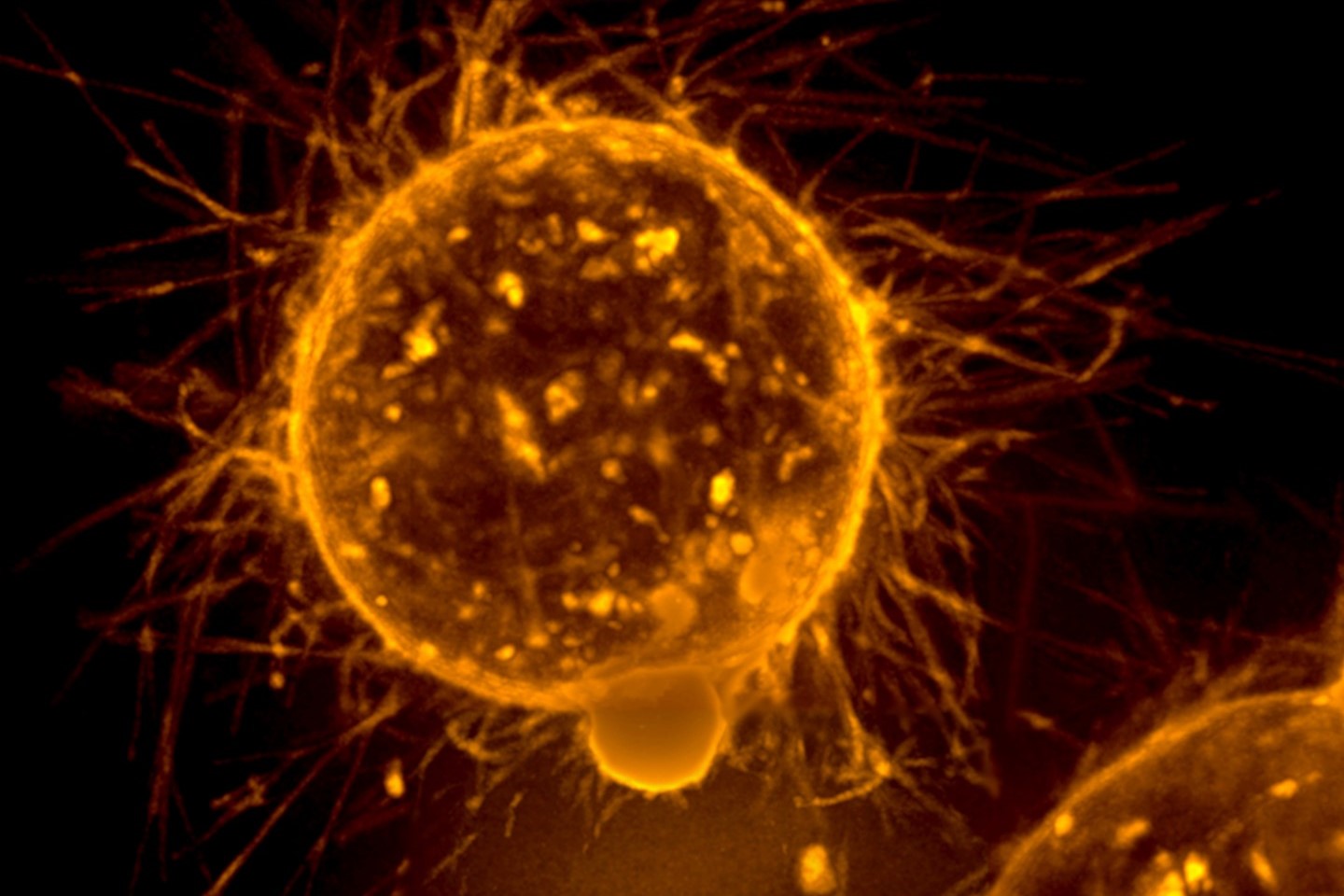
Gilead Sciences now has more clinical data showing that its breast cancer drug, Trodelvy, helped patients live longer. The FDA now has those data too, as the drugmaker said Monday that it has filed an application seeking to expand the targeted drug’s approval to encompass a much broader group of breast cancer patients. But specifics about the data will have to wait. Gilead said those details will be presented at a future medical conference.

Behavioral Health, Interoperability and eConsent: Meeting the Demands of CMS Final Rule Compliance
In a webinar on April 16 at 1pm ET, Aneesh Chopra will moderate a discussion with executives from DocuSign, Velatura, and behavioral health providers on eConsent, health information exchange and compliance with the CMS Final Rule on interoperability.
The scant details available for the drug, Trodelvy, follow disappointing results presented in June during the annual meeting of the American Society of Clinical Oncology (ASCO). Gilead said at the conference that its drug led to a 34% improvement in progression-free survival—how long a patient lives without the cancer worsening—which was the main goal of the Phase 3 study.
The disappointment was in the report of overall survival, a measure of how long patients live following treatment. On this secondary clinical trial goal, Gilead said at ASCO that patients treated with its drug lived a median of 5.5 months—just six weeks longer than those treated with chemotherapy. Speaking at ASCO, Véronique Dieras, on oncologist at Centre Eugene Marquis in Rennes, France, acknowledged that this result in overall survival was statistically significant, but she said it’s unclear whether the result of extending survival for a median six more weeks is clinically meaningful.
Foster City, California-based Gilead said Monday that the overall survival results are both statistically significant and clinically meaningful. The company offered no further explanation of those results, but did say that the safety profile for the drug was consistent with earlier studies.
Trodelvy is an antibody drug conjugate that delivers its cancer cell-killing drug payload to tumors by targeting TROP 2, a protein found on the surface of many types of solid tumors, including most breast cancers. The FDA approved Trodelvy in 2020 for treating triple negative breast cancer, a rare and aggressive type of breast cancer. Gilead has been working to expand the drug’s approval to HR positive/HER2 negative breast cancer, which is the most common type of breast cancer. Approval in this indication is important for achieving the blockbuster expectations placed on Trodelvy when Gilead paid $21 billion to acquire Immunomedics, the biotech company that initially developed the therapy.

A Deep-dive Into Specialty Pharma
A specialty drug is a class of prescription medications used to treat complex, chronic or rare medical conditions. Although this classification was originally intended to define the treatment of rare, also termed “orphan” diseases, affecting fewer than 200,000 people in the US, more recently, specialty drugs have emerged as the cornerstone of treatment for chronic and complex diseases such as cancer, autoimmune conditions, diabetes, hepatitis C, and HIV/AIDS.
Gilead reported $380 million in Trodelvy sales in 2021. In the first half of this year, the company’s financial reports show the drug generated $305 million in revenue, an 89.4% increase compared with the same period in 2021.
Gilead has been testing Trodelvy in a Phase 3 study evaluating the drug in patients with advanced HR2 positive/HER2 negative breast cancer whose disease has already received extensive prior treatment, including hormone therapy, drugs that block the CDK4/6 enzymes that drive cancer growth, and two to four lines of chemotherapy.
Merdad Parsey, Gilead’s chief medical officer, said in a prepared statement that the latest Trodelvy results “are important for the breast cancer community and we are encouraged by the potential this may have in helping patients who otherwise have limited alternatives. We look forward to discussing these results with global health authorities, as pre-treated HR positive/HER2 negative metastatic disease patients currently have limited treatment options and poor quality of life.”
Gilead is showing how much it believes in Trodelvy’s potential by acquiring the drug’s rights in China and other Asian markets. Everest Medicines acquired those rights in a 2019 deal with Immunomedics. Late Monday, Gilead announced it is paying Everest $280 million up front for the rights to the drug in those Asian markets. Everest could receive up to $175 million more in milestone payments tied to the achievement of regulatory and commercial milestones. Trodelvy is approved in China and Singapore for treating triple negative breast cancer. It is under review in that indication in other Asian markets.
Public domain image by Stuart S. Martin via the National Cancer Institute












